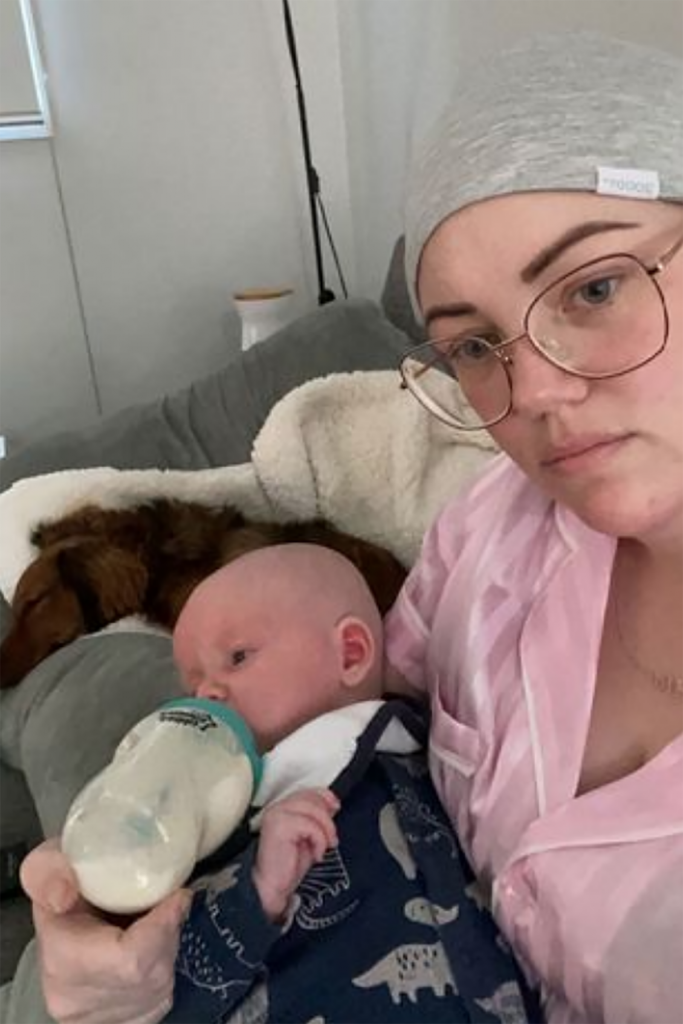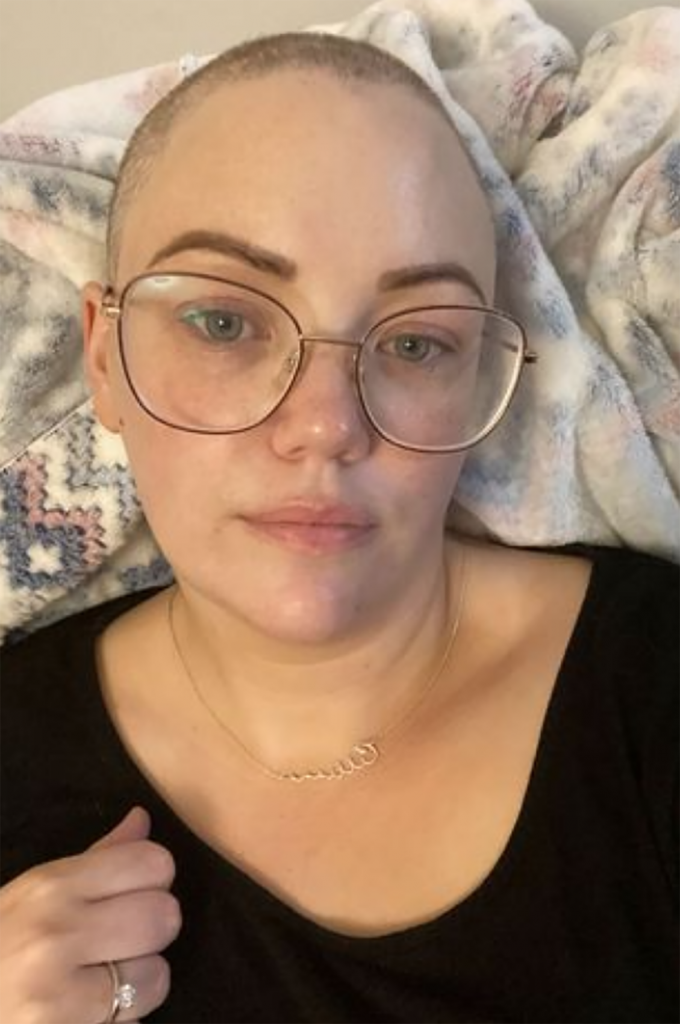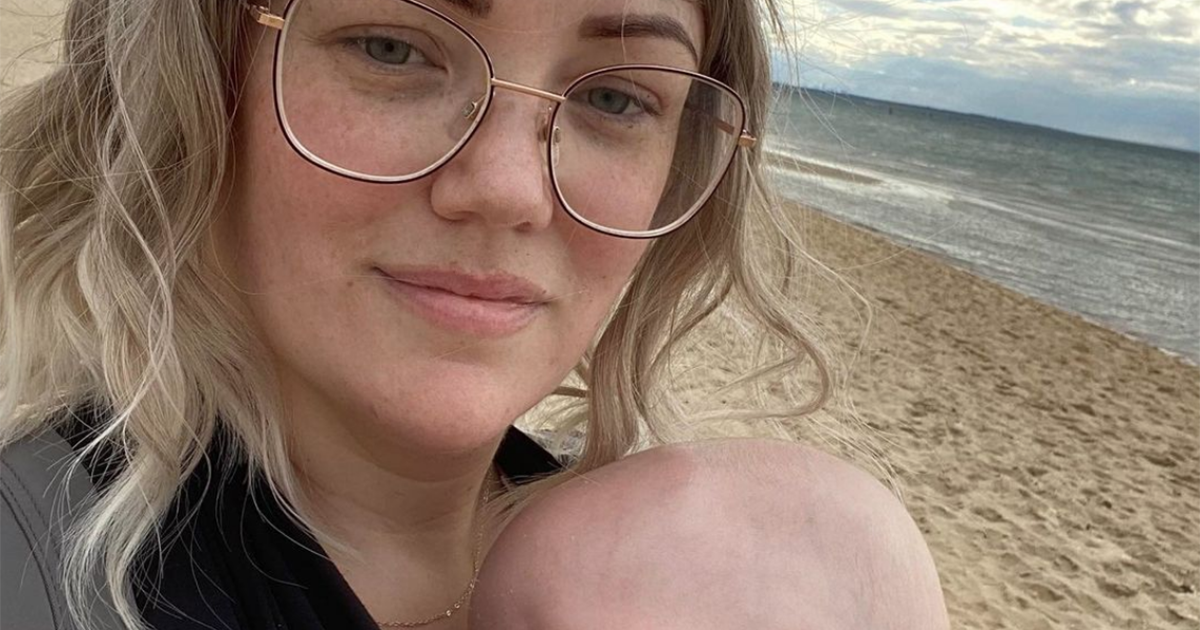Young Mother Diagnosed With Rare Cancer Caused by Pregnancy
- A young mother is battling a cancer so rare that nurses she's encountered have told her they have to Google it to find out more information.
- Ten weeks after giving birth, Darlene was back in the hospital. She was told she had suffered a molar pregnancy, which is when a noncancerous tumor develops in the uterus because of a non-viable pregnancy.
- Darlene was told her tumor was cancerous and diagnosed with choriocarcinoma, which is a malignant, fast-growing tumor that develops from the cells that help an embryo attach to the uterus and form the placenta.
"When I was in the ward, I'd speak to the nurses and they were like, 'We've not heard of it before, we've not had cases of it before,' and they'd say, 'We had to Google it,'" Darlene Lynch, 32, told The Mirror of her rare cancer diagnosis.
Read MoreAccording to the American Cancer Society, molar pregnancies that turn into cancer are technically called "gestational trophoblastic disease," or "GTD," and they differ from cervical cancer or endometrial cancer (cancer of the uterine lining) in that they don't develop from the cells that line the cervix or uterus. Instead, they develop from the cells that would, during a normal pregnancy, turn into a placenta.

Darlene and Nigel were first told the tumor was only precancerous, but doctors weren't able to figure out if the tumor had formed from part of Darlene's placenta (an organ that develops in the uterus during pregnancy), or if her new baby had a twin who hadn't fully developed.
The couple was later told that, unfortunately, the tumor was cancerous, and Darlene was diagnosed with choriocarcinoma.
According to the National Cancer Institute, choriocarcinoma is a malignant, fast-growing tumor that develops from the cells that help an embryo attach to the uterus and form the placenta. Oftentimes, this cancer forms in the uterus after fertilization of an egg by a sperm, but it can also form in an ovary.
"When I was first diagnosed it was hard, but I didn't have time to think about it," Darlene told The Mirror. "I went into the hospital on Monday and (on) Friday, I had my diagnosis, and on Saturday, I started my treatment."
However, the heartbreak of her diagnosis wasn't lost on the couple.

"When the oncologist said it was cancer, we were upset," Darlene said. "My partner was probably a lot more upset than I was because I was already kind of prepared. I think in my head I already thought it was cancer, so (I) was thinking of what to do next."
Darlene and her small family were dealt another blow in March when they were told her cancer had spread to her lungs. However, after multiple chemotherapy treatments, her tumors shrunk by about half.
She's still going through chemotherapy, in fact, she recently shared on Instagram that she had just completed her 10th week of treatment.
"I still get anxious and find it all very confronting especially in the day unit when faced with people who are all on very different journeys from mine and how busy it can be with people having treatment but it's something I'm working on," she wrote.
View this post on Instagram
How to Find Help After a Rare Cancer Diagnosis
Tens of thousands of people, like Darlene, are diagnosed with rare types of cancer every year.
People facing an uncommon diagnosis may find it difficult to find a doctor who specializes in their illness. SurvivorNet experts have specific guidance on ways that rare cancer patients can find helpful resources and take the initiative to get the help they need.
Here are some ways to find help:
Clinical Trials
Many SurvivorNet experts say that once they've exhausted all other options for treating their patients' cancer, or if they have a rare cancer, they'll recommend looking into clinical trials. How can you find active clinical trials that may be right for you? Check out clinicaltrials.gov.
Clinical Trials Can be Life-Saving for Some
This website is a database that the U.S. government maintains. It compiles privately and publicly funded clinical trials conducted around the world. It can be a particularly useful resource for cancer patients with rare conditions as a tool for finding doctors who are experts on their diseases.
Oftentimes, the most specialized doctors in a specific field end up leading clinical trials that push our understanding of diseases forward. If you know what the name of your disease is, you can search the disease name on clinicaltrials.gov and find the names of doctors leading these kinds of studies. This tool can help you identify the doctors who are best qualified to help you.
Academic Centers & Comprehensive Care Centers
For many cancer warriors, community oncology can be a great treatment resource. However, people with rare cancer might require specialized evaluation. Most of the time, the most effective place to find a specialist is at academic centers and comprehensive care centers.
Seeking Care at a Comprehensive Cancer Center
"A comprehensive cancer center is a cancer center that has been essentially vetted by the National Cancer Institute, and provides outstanding clinical care in addition to basic and translational science and research," Dr. Ted Teknos, president at University Hospitals Seidman Cancer Center in Cleveland, Ohio, perviously told SurvivorNet.
Across the U.S., there are only about 50 accredited comprehensive cancer centers. There are also various cancer cancers.
What's the difference between the two? Well, an NCI-designated cancer center means that a center has met NCI standards for cancer prevention, clinical services or research, but not all three. If a facility is an NCI-designated comprehensive cancer center, that means it meets NCI standards in all three categories.
Dr. Kenneth Miller, a clinical instructor at Mount Sinai, previously told SurvivorNet about what differentiates a comprehensive cancer center from other treatment providers, like community medicine.
"Pretty much automatically, there's going to be a team approach (to your care)," Dr. Miller said. "Surgical oncology, medical oncology, radiation oncology and all the support services and also wonderful pathology and radiology." Dr. Miller explains that at a comprehensive cancer center, all of these different specialists work together to help you find the best treatment.
"We call it a tumor board a group to go through all the details of your case … so you get a group of very smart people coming up with a plan together that is hopefully optimal and gives you the best chance of doing well."
Contributing: Joe Kerwin
Learn more about SurvivorNet's rigorous medical review process.


